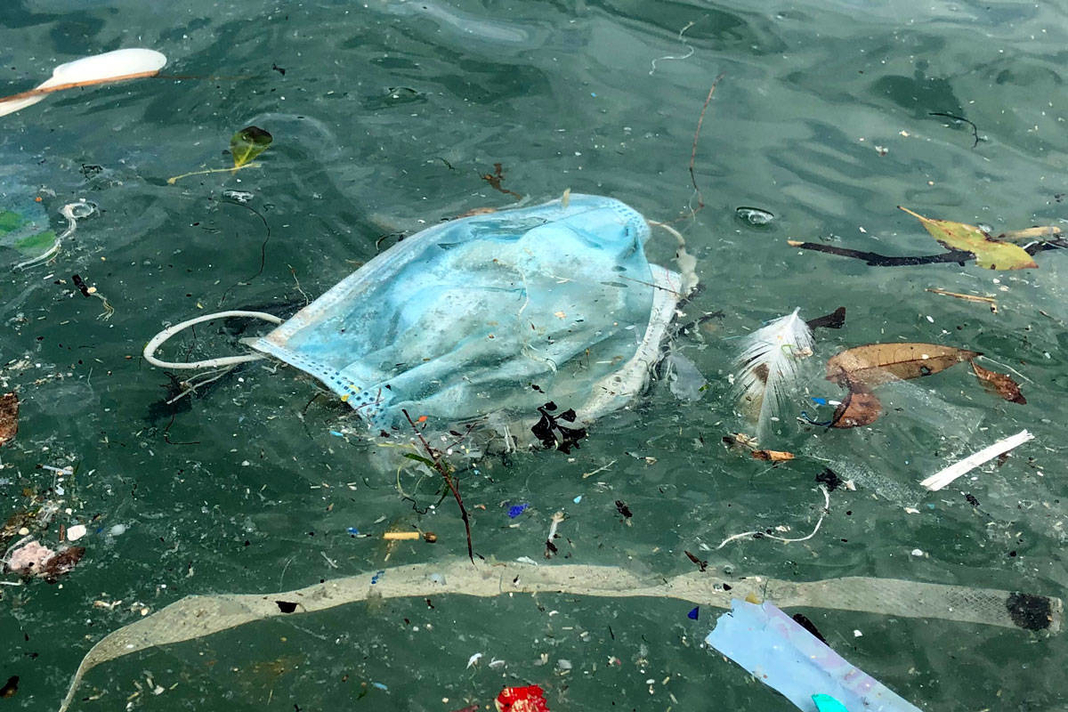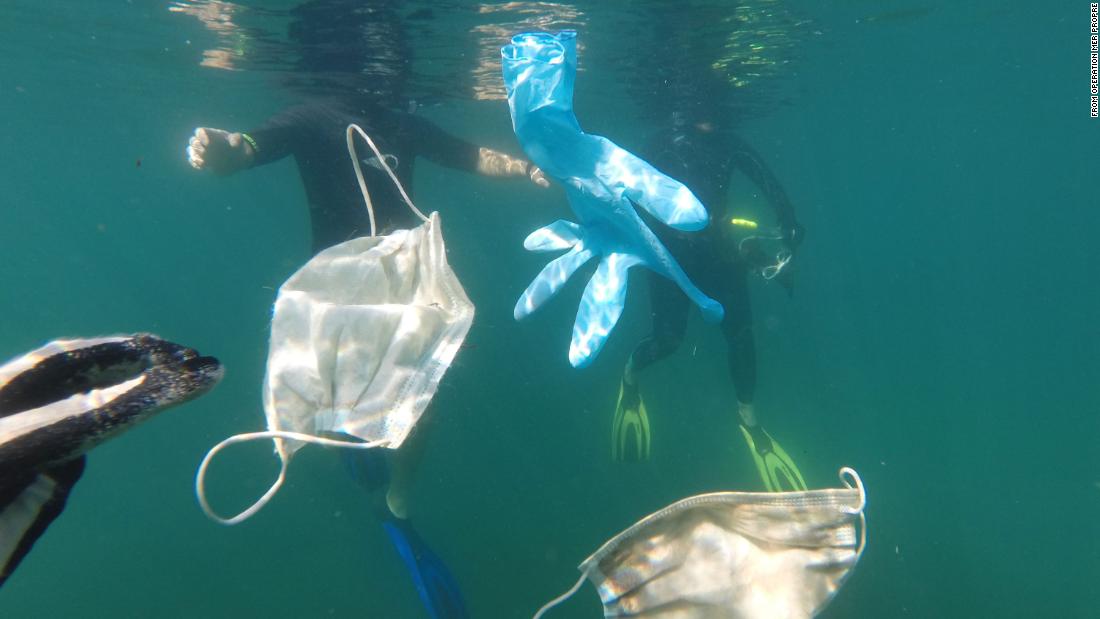More than one year has passed since the outbreak of the novel coronavirus pandemic started. As personal protective items were heavily used due to their effective role in preventing infection, a serious environmental problem has emerged; namely, the safe disposal of these items. Unfortunately, they often end up in the seas and oceans, causing a long-lasting devastating impact on the environment in general, and marine ecology in particular.
At the beginning, let us mention two main reasons why these wastes are harmful, and identify their impact and the damage they cause to the ecosystem.
First, chemicals present in surgical masks, such as ethylene and crystallized acrylic, pose serious environmental threats. Moreover, in addition to the non-woven material and activated carbon used in surgical masks, they also contain large amounts of polypropylene, a plastic-based material that takes up to decades or even centuries to degrade, releasing several poisonous material during this process. It is expected that these high-quality masks will not degrade easily; hence, their disposal will have negative impacts on the environment and the global community.

Source.
Second, an estimate of 129 billion surgical masks and 65 billion gloves are used monthly around the world. Given this estimate, we are facing a huge problem; to make things clearer, let us set the following example: The improper disposal of 1% of facial masks means that we have over 10 million masks that weigh from 30.000 to 40.000 kilograms.
Pandemic wastes will not only impact us, but animals and plants as well. Some animals, such as sea turtles, cannot differentiate between plastics and food, and they end up suffocating. If they luckily escape this disastrous fate, they will at least suffer from malnutrition due to consuming materials with no nutritional value. Smaller creatures might get stuck in masks or gloves, and eventually die.

Source.
The beginning of a solution to this problem is simple. Experts advise to substitute one-use personal protective items with reusable ones, such as fabric masks that can be reused after proper washing. Also, they recommend proper hand-washing to using gloves that give a false sense of protection against the coronavirus.
Some startups, such as Tricycle Waste Management, provide waste containers for personal protection items. These wastes end up with other plastic wastes for recycling and reuse by third parties. New products that reuse them include recycled furniture and storage containers.
References
sciencemag.org
theconversation.com
Freepik.com
Face Masks: New Solutions to Reduce Their Negative Impact on the Environment - MedicalExpo e-Magazine